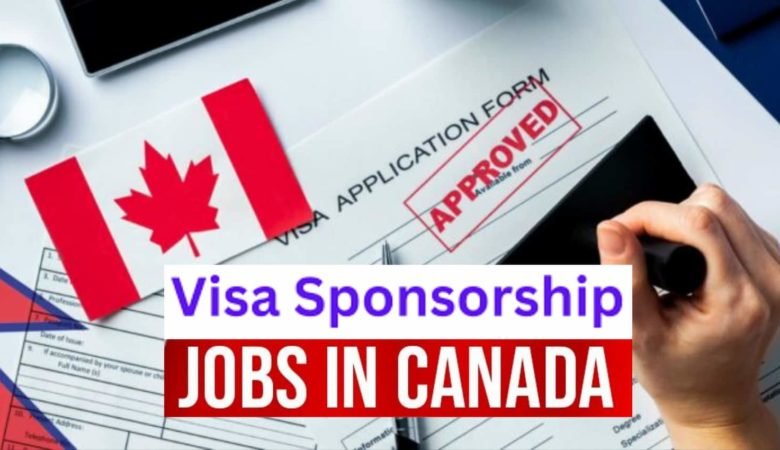Introduction: Your Ticket to Working Abroad
For many job seekers across Africa, Asia, and beyond, the dream of working in the UK or Europe comes with two major hurdles: finding reliable employment and securing visa sponsorship. The reality is that while opportunities exist, navigating international recruitment is tricky—there are countless fake job offers, complicated immigration rules, and overwhelming choices of recruitment agencies.
The good news is that some trusted recruitment agencies specialize in connecting skilled workers with employers who are willing to sponsor visas. These agencies bridge the gap between global talent and employers struggling to fill shortages in industries like healthcare, IT, engineering, and hospitality.
In this guide, we’ll break down the best recruitment agencies for visa sponsorship jobs in the UK and Europe, highlight what makes them stand out, and share practical tips for choosing wisely.
Why Recruitment Agencies Are Crucial for Visa Sponsorship
International job applications can be intimidating. Between understanding visa requirements, tailoring your CV to European standards, and proving you meet eligibility criteria, it’s easy to make mistakes. Recruitment agencies reduce this stress by:
- Connecting you with employers who are legally allowed to sponsor visas.
- Helping you navigate paperwork and compliance requirements.
- Advising on industry-specific opportunities.
- Offering relocation support, from housing to cultural integration.
According to the UK Government’s official shortage occupation list, healthcare and IT roles are among the most in-demand, making agencies in these sectors particularly valuable (UK Visas and Immigration).
Top Recruitment Agencies for Visa Sponsorship Jobs
Here are some of the most reliable agencies that help job seekers secure visa sponsorship in the UK and Europe.
1. Hays Recruitment (UK and Europe)
Hays is one of the largest global recruitment firms with offices across the UK and Europe. They specialize in healthcare, IT, finance, and engineering.
Why Hays Stands Out:
- Strong employer connections in shortage fields.
- Guidance on UK visa sponsorship requirements.
- Support for international candidates adjusting to new markets.
2. Adecco (Europe-wide)
Adecco is a well-known recruitment agency operating across multiple European countries, including Germany, France, Spain, and the UK.
Key Features:
- Focus on both temporary and permanent jobs.
- Strong presence in industrial and administrative sectors.
- Provides relocation and visa assistance for non-EU candidates.
3. NHS Professionals (UK Healthcare)
For healthcare workers, the NHS is one of the most trusted routes to the UK. NHS Professionals works with hospitals to recruit nurses, midwives, and support staff.
Why Choose NHS Professionals:
- Official NHS partner.
- Provides full visa sponsorship for eligible healthcare roles.
- Offers relocation packages and cultural orientation.
4. CPL Healthcare (Ireland and Europe)
CPL Healthcare is one of the top recruitment agencies in Ireland, with a strong presence in healthcare recruitment across Europe.
Highlights:
- Specializes in nursing, allied health, and medical roles.
- Helps non-EU candidates secure work permits.
- Offers pre-departure training for international workers.
5. Michael Page (UK and EU)
Michael Page focuses on mid- to high-level professional roles in finance, business management, and IT.
Why It’s Reliable:
- Works directly with multinational companies.
- Helps candidates secure Skilled Worker Visa sponsorships.
- Offers tailored coaching for international applicants.
Comparison Table: Recruitment Agencies for Visa Sponsorship
| Agency | Specialization | Regions Covered | Visa Sponsorship Support |
|---|---|---|---|
| Hays Recruitment | IT, healthcare, engineering | UK & Europe | Skilled Worker Visa guidance |
| Adecco | Industrial, admin, general | UK & Europe-wide | Work visa assistance |
| NHS Professionals | Nursing, healthcare staff | UK | Full sponsorship + relocation |
| CPL Healthcare | Nursing, allied health | Ireland & wider Europe | Work permit + training |
| Michael Page | Finance, IT, business | UK & EU | Sponsorship for high-demand roles |
This table makes it easier to compare agencies at a glance and choose based on career goals.
How to Spot Fake Recruitment Agencies
Every year, thousands of international job seekers—especially from Africa and Asia—lose their savings to fake recruitment agencies. These scammers prey on desperation, promising “guaranteed jobs” in the UK or Europe with visa sponsorship, only to vanish after collecting fees.
In fact, reports show that fraudulent job offers remain one of the biggest barriers for migrants trying to work abroad. The rise of digital job boards and social media has made scams even harder to detect. However, with the right knowledge, you can spot fake recruitment agencies before they steal your money or waste your time.
1. Unrealistic Job Offers and Promises
If it sounds too good to be true, it probably is. Fake agencies often advertise jobs with:
- Extremely high salaries for low-skilled roles.
- No experience or qualifications required.
- Guaranteed visa sponsorship without interviews.
Example:
A scammer might claim you can earn £5,000 per month as a cleaner in London with free housing and meals. In reality, such offers are impossible—UK employers must follow strict wage and sponsorship rules.
Red Flag Rule: Genuine employers never guarantee jobs without reviewing your qualifications and conducting interviews.
2. Upfront Payments for Processing Fees
Fake agencies frequently ask candidates to pay “visa fees,” “processing charges,” or “immigration deposits” before a job is confirmed.
Why This is a Scam:
- Legitimate recruitment agencies are usually paid by employers, not job seekers.
- Government visa fees are paid directly through official immigration websites, not via third-party agents.
- Scammers use urgency tactics, pressuring you to send money quickly to “secure your slot.”
Tip: Always confirm official visa fees on trusted sites like the UK Government Skilled Worker Visa page.
3. Lack of a Verified Business Presence
A legitimate agency will always have:
- A registered business name.
- A verifiable physical office address.
- A professional website and official email domain (not free accounts like Gmail or Yahoo).
How to Verify:
- Use the UK’s Companies House database to check if the agency is registered.
- For European agencies, cross-check on the EURES portal run by the European Labour Authority.
- Google Maps the office address to ensure it exists and matches their claims.
If all you see is a WhatsApp number and a vague promise, run!
4. Poor Communication and Unprofessional Conduct
Legitimate agencies maintain professional communication. Fake ones often:
- Use poor grammar and spelling in emails.
- Avoid giving straight answers to simple questions.
- Refuse to share company registration numbers or license details.
- Pressure you into making fast decisions.
Example: Emails filled with capital letters like “CONGRATULATIONS!!! YOU HAVE BEEN SELECTED!!! PAY NOW TO PROCESS VISA!!!” are clear warning signs.
5. No Online Presence or Negative Reviews
Before trusting any agency, research its reputation. Fake recruitment agencies leave digital footprints that expose them.
How to Check:
- Search the agency’s name on Google + “scam” or “fraud.”
- Look for reviews on LinkedIn, Facebook, or job boards.
- Join migrant WhatsApp or Telegram groups where people share experiences.
If you find consistent complaints, steer clear. Genuine agencies will have testimonials, case studies, or industry partnerships.
6. Suspicious Contracts and Offer Letters
Fraudulent agencies often send fake offer letters designed to impress but filled with errors.
Warning Signs in Documents:
- Company logos that look stretched or pixelated.
- Vague job descriptions with no duties or responsibilities.
- Salaries listed in foreign currencies without standard tax deductions.
- Missing contact details for HR or employer representatives.
A legitimate job offer will clearly outline:
- Your role and responsibilities.
- Salary, benefits, and working hours.
- Employer contact information.
- Probation and termination clauses.
7. Unlicensed to Recruit Internationally
Most countries require recruitment agencies to be licensed before hiring foreign workers. Scammers exploit ignorance of these rules.
Verification Steps:
- In the UK, check if the agency is a member of the Recruitment and Employment Confederation (REC).
- In Europe, confirm through official labor authority websites.
- Ask the agency directly for their license or registration number.
If they dodge the question, that’s your answer.
8. Pressure Tactics and Urgency
Fraudulent recruiters thrive on panic. They often say:
- “This offer expires in 24 hours.”
- “You must pay now before your slot is given to someone else.”
- “Visas are limited—secure yours today.”
Legitimate agencies understand that international recruitment takes time. No credible employer would rush you into paying fees or signing contracts.
9. No Clear Employer Information
A recruitment agency should tell you exactly who the employer is. Scammers keep this vague.
Questions to Ask:
- Who is the employer, and where are they located?
- Can I visit the company’s website?
- Will I have direct contact with HR before relocation?
If the recruiter refuses to reveal the employer or only uses generic phrases like “top UK companies,” it’s a scam.
10. Job Ads Shared Only on WhatsApp or Facebook Groups
While many Nigerians find job updates on WhatsApp, beware of agencies that operate only through social media messages.
Why This is Risky:
- Fake recruiters prefer platforms without accountability.
- They can disappear easily after collecting money.
- They rarely provide official documentation or traceable websites.
Always ensure the job is listed on a legitimate recruitment portal or agency website.
Checklist to Avoid Fake Recruitment Agencies
Here’s a simple checklist to guide your decisions:
| Red Flag | What It Means |
|---|---|
| Requests for upfront payments | Likely a scam—legit fees are paid to gov’t |
| No verified license or registration | Illegal recruiter |
| Offers unrealistically high salaries | Fake promises |
| Poor grammar in communication | Unprofessional, often fraudulent |
| No clear employer information | Hiding the truth |
| Operates only on WhatsApp/Facebook | No accountability |
| Urgency tactics (“pay today”) | Manipulation to force fast action |
If an agency triggers multiple red flags, walk away.
What To Do If You Suspect a Scam
- Report the agency to your country’s Ministry of Labour or Foreign Affairs.
- File complaints with the UK’s Action Fraud service.
- Warn others by posting on social media or community forums.
- Never share personal details (passport, bank info) with unverified recruiters.
Stay Alert, Stay Safe
Visa sponsorship jobs in the UK and Europe are real—but so are the scams. Fake recruitment agencies thrive because they know how desperate people are to secure opportunities abroad.
By staying alert to the warning signs—unrealistic offers, upfront fees, poor communication, lack of licenses, and urgency tactics—you can protect yourself. Always cross-check information on official portals, and if in doubt, walk away.
Remember: losing an opportunity is painful, but losing your hard-earned money to fraud is worse.
Tips for Maximizing Success with Recruitment Agencies
- Polish Your CV to UK/EU Standards
Recruitment agencies often reject poorly formatted CVs. Use clear headings, highlight skills, and avoid unnecessary details. - Target High-Demand Sectors
Focus on healthcare, IT, and engineering, where visa sponsorship is most common. - Prepare for Online Interviews
Many agencies conduct first-round interviews virtually. Invest in good internet and practice professional communication. - Understand the Visa Pathway
Research visa categories (like the UK Skilled Worker Visa) so you know what documents and qualifications you’ll need. - Stay Patient and Persistent
International recruitment takes time. Some candidates get jobs in weeks; others wait months. Stay consistent.
Real-Life Example: From Lagos to London
Consider Blessing, a nurse from Lagos. She applied through NHS Professionals, who guided her through every stage—from IELTS exams to visa applications. Within nine months, she relocated to the UK with her visa sponsored, housing arranged, and a support system waiting.
Stories like this prove that with the right agency, international opportunities are achievable.
Conclusion: Your Pathway to a Global Career
Visa sponsorship jobs in the UK and Europe are competitive, but with the right recruitment agency, your chances of success rise significantly. Agencies like Hays, Adecco, NHS Professionals, CPL Healthcare, and Michael Page are trusted partners that connect talent to genuine opportunities.
The key is to avoid scams, stay disciplined, and align your skills with high-demand sectors. By doing so, you won’t just get a job—you’ll build a sustainable international career.
Frequently Asked Questions (FAQs)
1. How can I tell if a recruitment agency is genuine?
Check if the agency is registered and licensed with relevant authorities. In the UK, look for membership with the Recruitment and Employment Confederation (REC). In Europe, verify through the official EURES portal. A genuine agency will also have a verifiable office address, official website, and transparent employer information.
2. Do real recruitment agencies ask for upfront payments?
No. Legitimate agencies are typically paid by employers, not job seekers. If an agency asks you to pay “visa fees,” “processing charges,” or large deposits upfront, it is likely a scam. Official visa payments should always be made directly through government websites.
3. Why do fake agencies use urgency tactics?
Fraudsters pressure candidates with lines like “pay today or lose the opportunity” to force quick decisions. This tactic preys on desperation. Real agencies understand recruitment is a process and never demand rushed payments.
4. What documents should I expect from a real job offer?
A genuine offer includes:
- Detailed job description.
- Employer’s official contact details.
- Salary, benefits, and tax information.
- Terms of employment, including probation and termination clauses.
Fake offers often use vague wording, poor grammar, or pixelated company logos.
5. Can I trust job offers sent only via WhatsApp or Facebook?
Be cautious. While recruiters may share updates on social platforms, legitimate offers are always backed by official websites or portals. If an “agency” operates only through WhatsApp chats or Facebook groups with no traceable presence, it’s a red flag.
6. What should I do if I’ve been scammed by a fake agency?
- Report the fraud to your local Ministry of Labour or Foreign Affairs.
- In the UK, contact Action Fraud (the national fraud reporting center).
- Warn others by sharing your experience in online communities.
- Stop all communication with the scammer to protect your personal data.
7. Are all online job postings risky?
Not all. Many legitimate agencies advertise online. The key is to verify every detail—the company’s registration, employer information, and whether the job aligns with official visa requirements. If in doubt, cross-check on portals like the UK Skilled Worker Visa page.



